 Image 1 of 8
Image 1 of 8

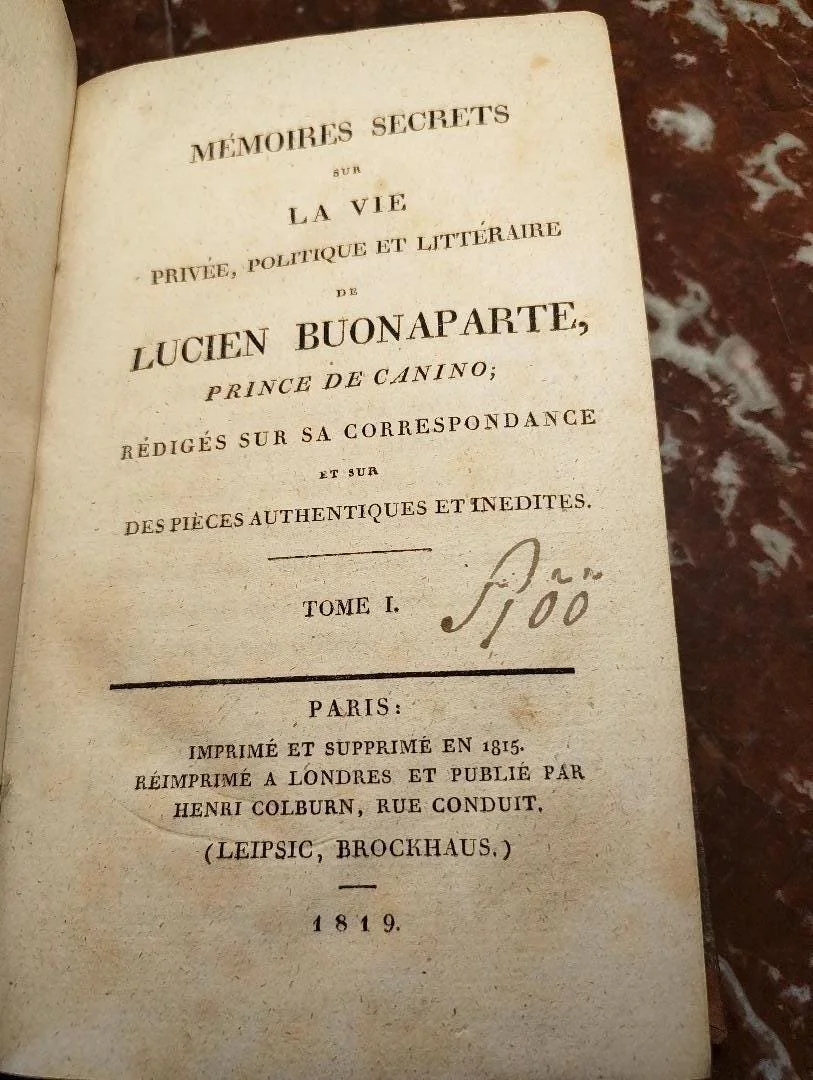 Image 2 of 8
Image 2 of 8

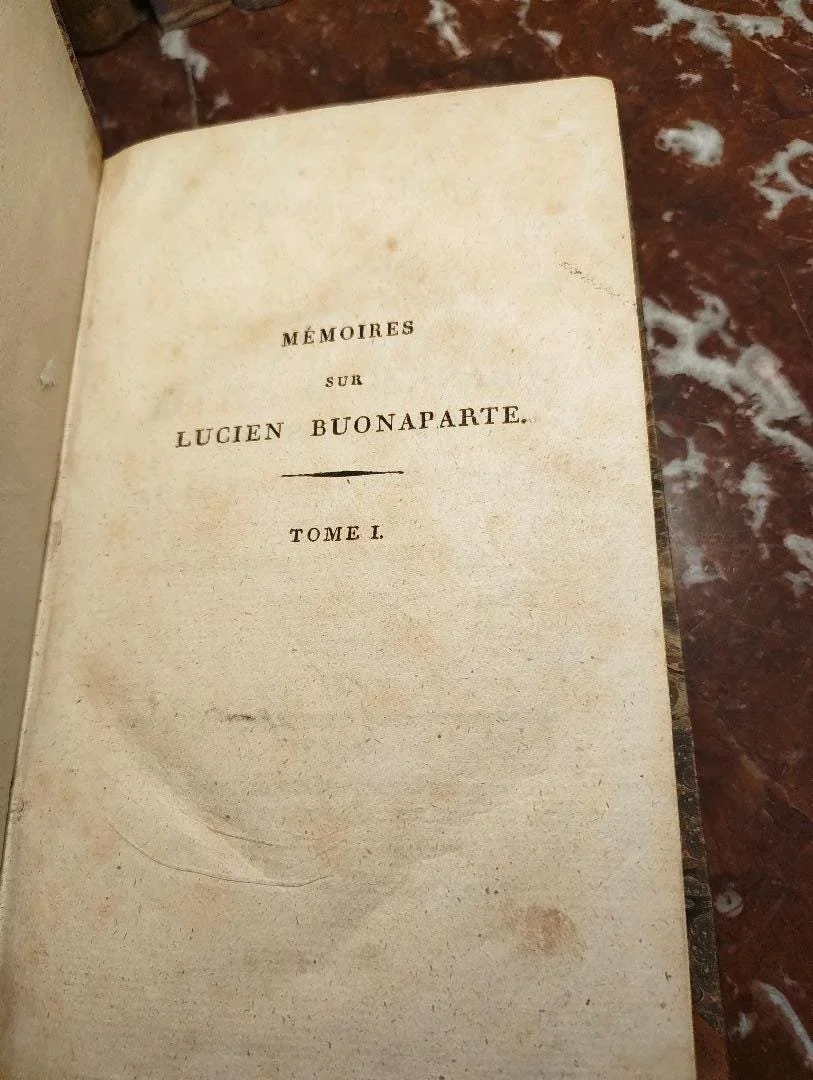 Image 3 of 8
Image 3 of 8

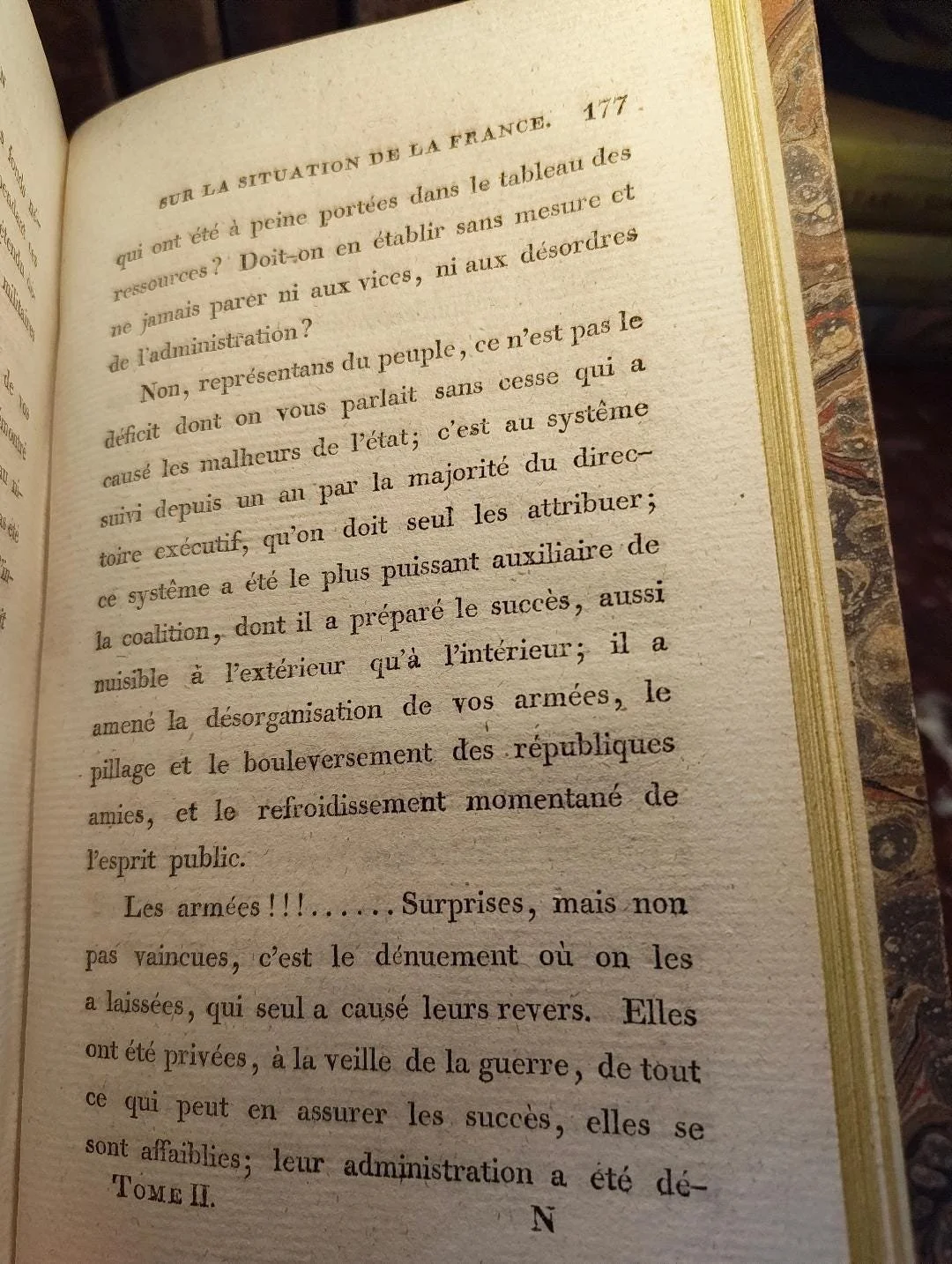 Image 4 of 8
Image 4 of 8

 Image 5 of 8
Image 5 of 8

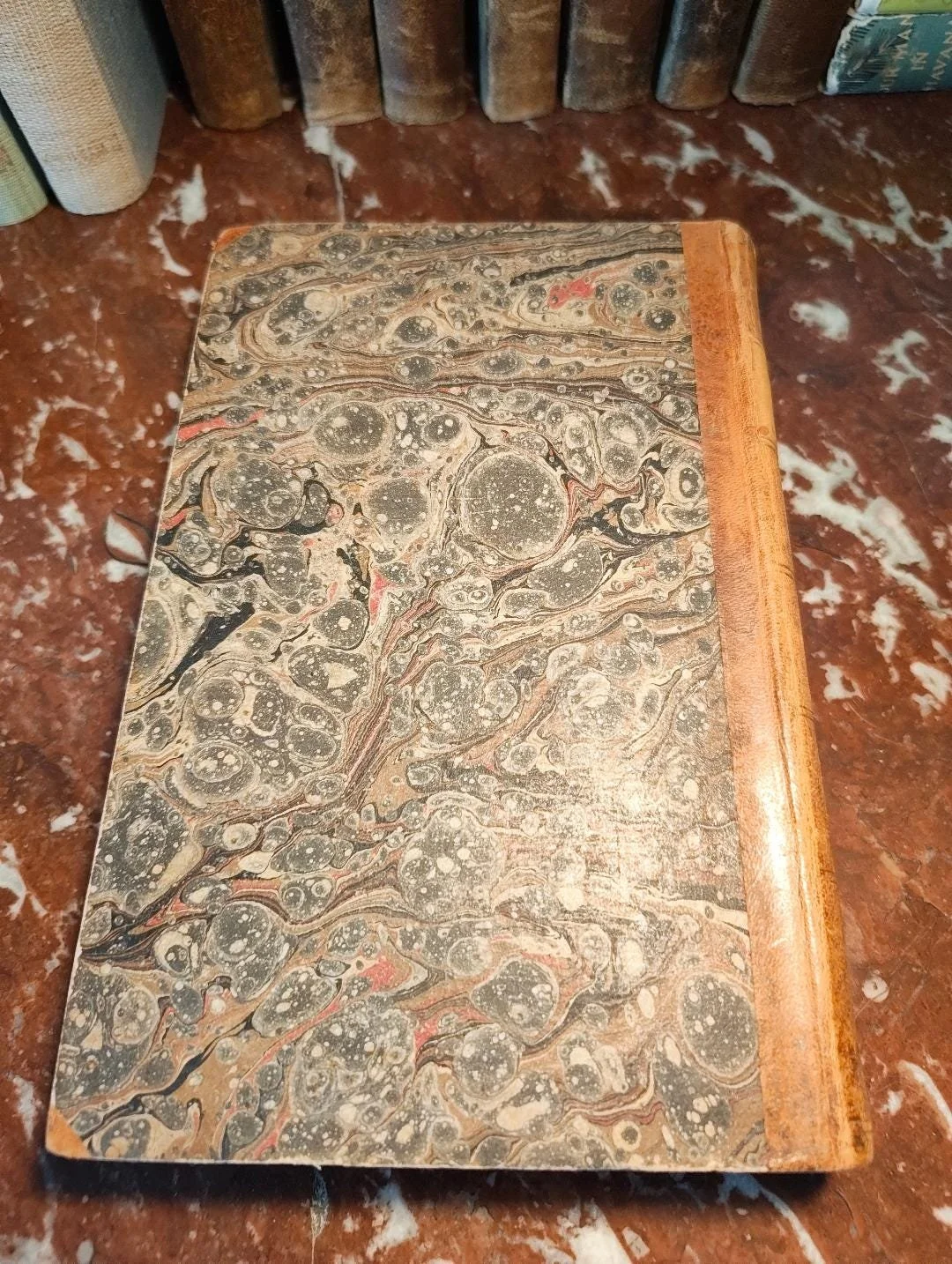 Image 6 of 8
Image 6 of 8

 Image 7 of 8
Image 7 of 8

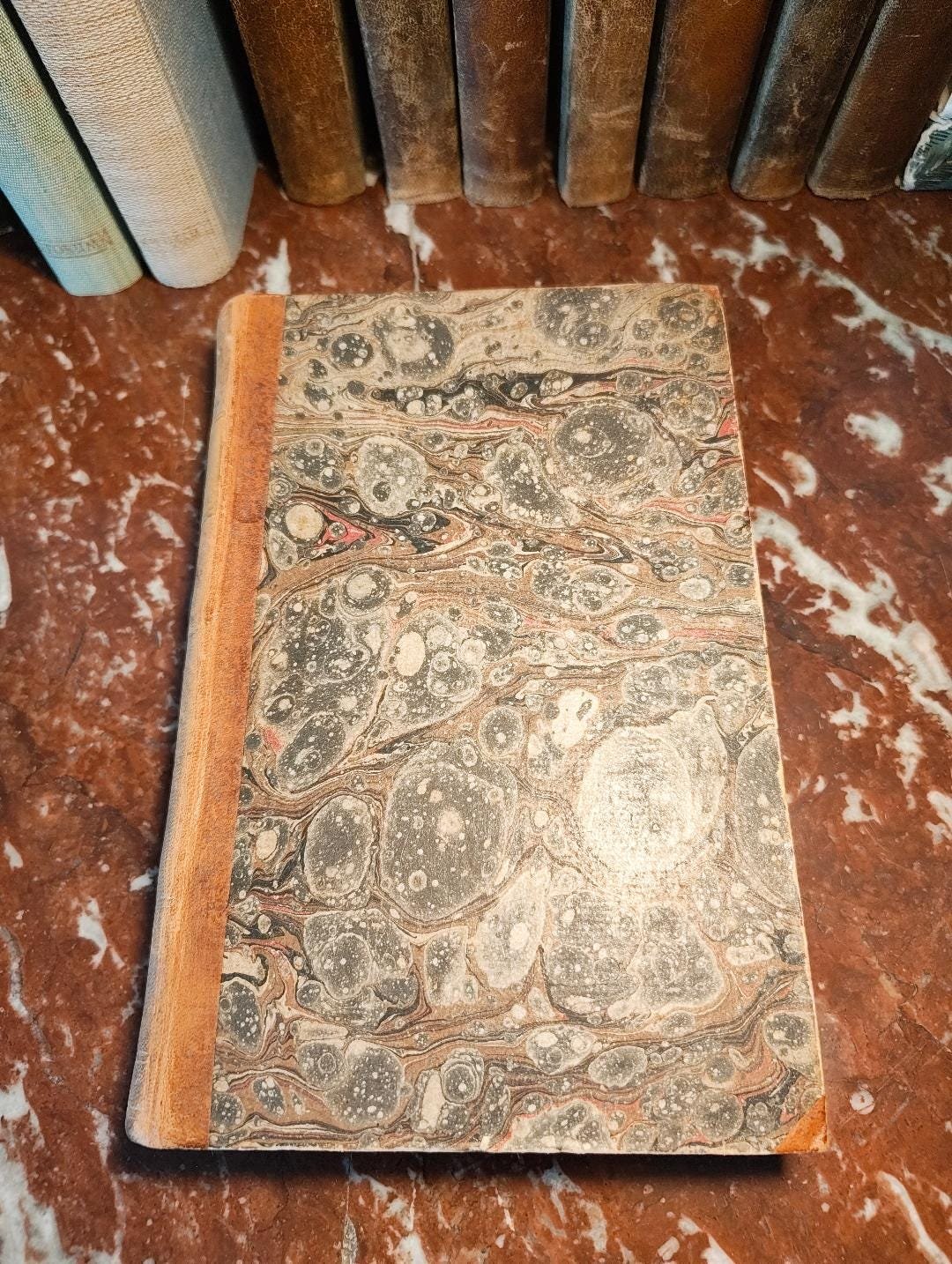 Image 8 of 8
Image 8 of 8









Mémoires secrets de Lucien Buonaparte
A candid and controversial portrait of the Bonaparte family during the fall of the Empire
This 1819 printing of Mémoires secrets de Lucien Buonaparte presents one of the most intriguing works to emerge from the Napoleonic era. First issued in Paris in 1815 and swiftly censored, the memoirs reveal the private, political, and literary life of Lucien Bonaparte, Napoleon’s independent minded younger brother whose disagreements with the Emperor reshaped both his personal fate and his position within the wider Bonaparte dynasty.
Published in London by Henry Colburn with parallel involvement from Brockhaus in Leipzig, this edition reflects the swift international demand for insider accounts during the turbulent years following Napoleon’s abdication. Lucien’s narrative offers an unusually candid view of the internal tensions of the Bonaparte family. His memoirs illuminate conflicts of principle, disputes over succession, and the political fractures that accompanied the collapse of imperial authority in France. At the same time they provide a vivid portrait of European political culture during the transition from Empire to Restoration.
This volume is preserved in its contemporary half leather binding with marbled boards and gilt decoration along the spine. The leather is rubbed and worn at the edges, yet the structure of the book remains sound. The interior is generally clean with light age toning and retains an appealing early nineteenth century character. This is the first volume of the set, complete in itself and representative of the style and production of Napoleonic era publishing.
For collectors of French history, political memoirs, or books connected to the Bonaparte family, this copy offers an engaging and historically significant example. It captures the atmosphere of a Europe in transition and preserves the voice of a figure whose proximity to power, and simultaneous estrangement from it, produced one of the more revealing personal accounts of the period.
A candid and controversial portrait of the Bonaparte family during the fall of the Empire
This 1819 printing of Mémoires secrets de Lucien Buonaparte presents one of the most intriguing works to emerge from the Napoleonic era. First issued in Paris in 1815 and swiftly censored, the memoirs reveal the private, political, and literary life of Lucien Bonaparte, Napoleon’s independent minded younger brother whose disagreements with the Emperor reshaped both his personal fate and his position within the wider Bonaparte dynasty.
Published in London by Henry Colburn with parallel involvement from Brockhaus in Leipzig, this edition reflects the swift international demand for insider accounts during the turbulent years following Napoleon’s abdication. Lucien’s narrative offers an unusually candid view of the internal tensions of the Bonaparte family. His memoirs illuminate conflicts of principle, disputes over succession, and the political fractures that accompanied the collapse of imperial authority in France. At the same time they provide a vivid portrait of European political culture during the transition from Empire to Restoration.
This volume is preserved in its contemporary half leather binding with marbled boards and gilt decoration along the spine. The leather is rubbed and worn at the edges, yet the structure of the book remains sound. The interior is generally clean with light age toning and retains an appealing early nineteenth century character. This is the first volume of the set, complete in itself and representative of the style and production of Napoleonic era publishing.
For collectors of French history, political memoirs, or books connected to the Bonaparte family, this copy offers an engaging and historically significant example. It captures the atmosphere of a Europe in transition and preserves the voice of a figure whose proximity to power, and simultaneous estrangement from it, produced one of the more revealing personal accounts of the period.

